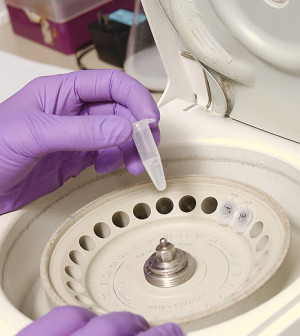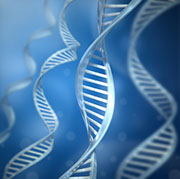- 8 Ways to Increase Dopamine Naturally
- 7 Best Breads for Maintaining Stable Blood Sugar
- Gelatin vs. Collagen: Which is Best for Skin, Nails, and Joints?
- The Long-Term Effects of Daily Turmeric Supplements on Liver Health
- Could Your Grocery Store Meat Be Causing Recurring UTIs?
- Are You Making This Expensive Thermostat Error This Winter?
- Recognizing the Signs of Hypothyroidism
- 10 Strategies to Overcome Insomnia
- Could Artificial Sweeteners Be Aging the Brain Faster?
- Techniques for Soothing Your Nervous System
Scientists Rewrite Germ’s Genetic Code


THURSDAY, Oct. 17Scientists have shown that it is possible to rewrite the genome of an organism, and boost its ability to fight off viruses, thereby demonstrating the potential benefits of remaking an organism’s genetic structure, the researchers say.
“This is the first time the genetic code has been fundamentally changed,” study co-author Farren Isaacs, an assistant professor of molecular, cellular and developmental biology at Yale University, said in a university news release. “Creating an organism with a new genetic code has allowed us to expand the scope of biological function in a number of powerful ways.”
In the new study, Isaacs and colleagues at Harvard and Yale made substitutions in the genetic alphabet of an E. coli bacterium in order to make it produce fewer proteins that are vulnerable to viruses.
The researchers hope the ability to recode an organism’s genome could be used in biomanufacturing to create a new generation of proteins and polymers. These could potentially aid the development of new types of materials and new ways to combat disease.
“Since the genetic code is universal, it raises the prospect of recoding genomes of other organisms,” Isaacs said in the news release. “This has tremendous implications in the biotechnology industry and could open entirely new avenues of research and applications.”
The study is published in the Oct. 18 issue of the journal Science.
More information
For more about genetics, visit the U.S. National Library of Medicine.
Source: HealthDay
Copyright © 2026 HealthDay. All rights reserved.










